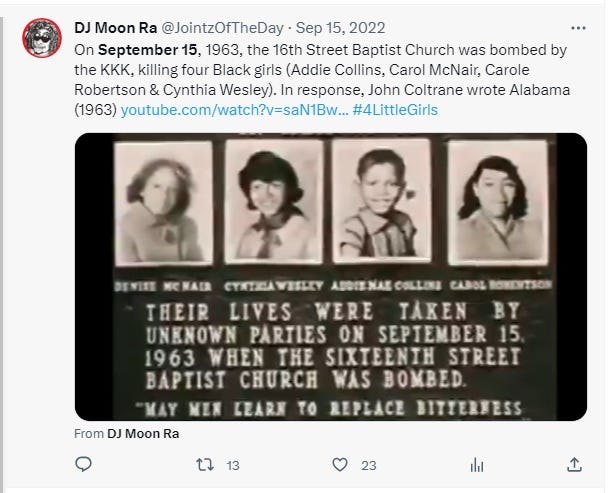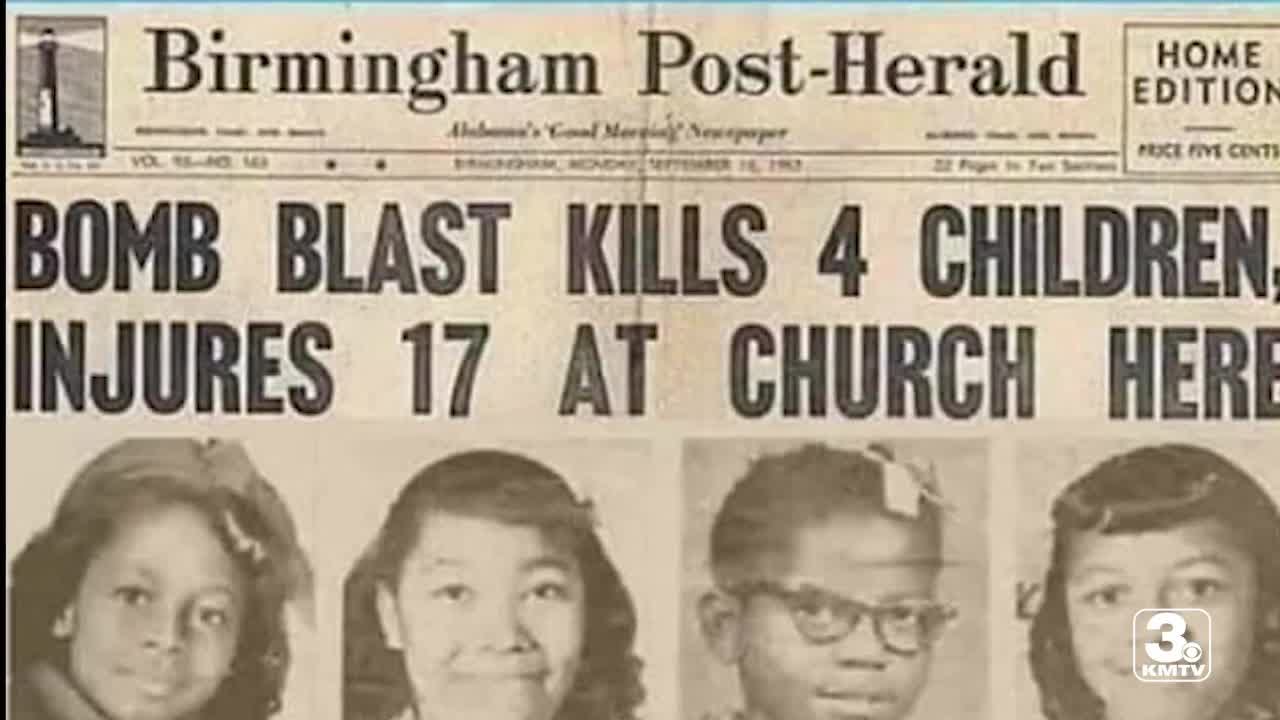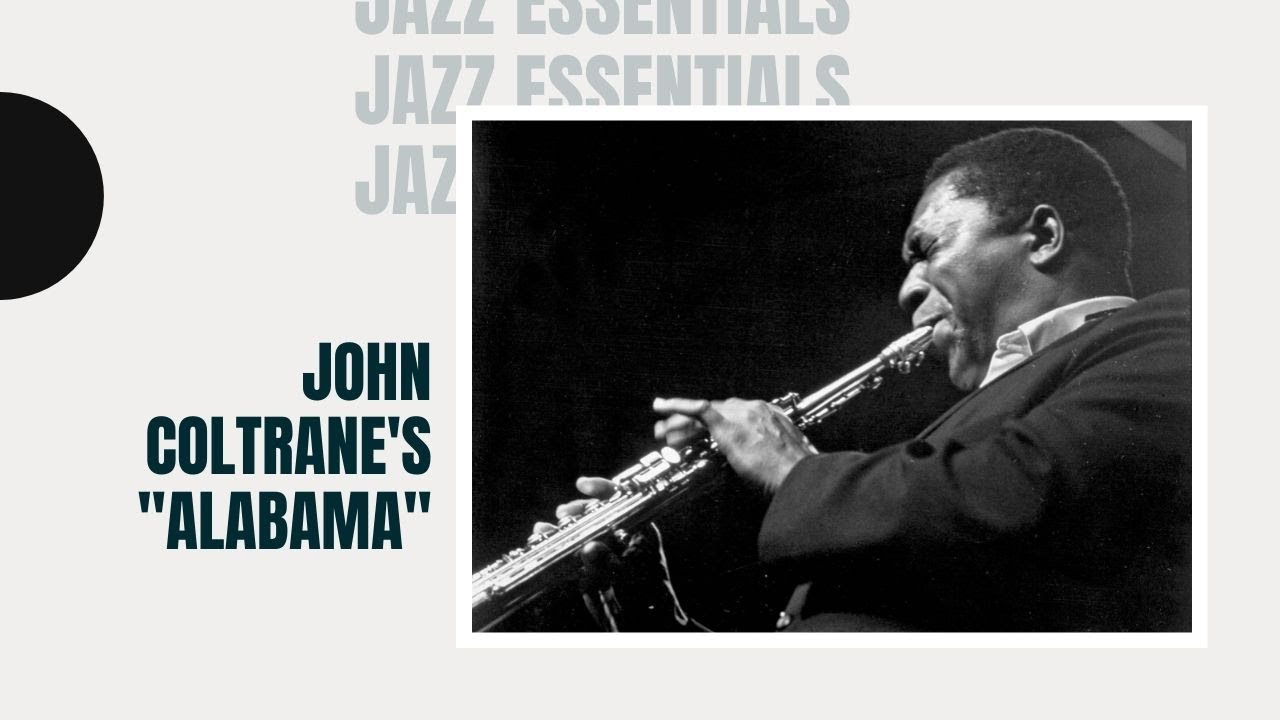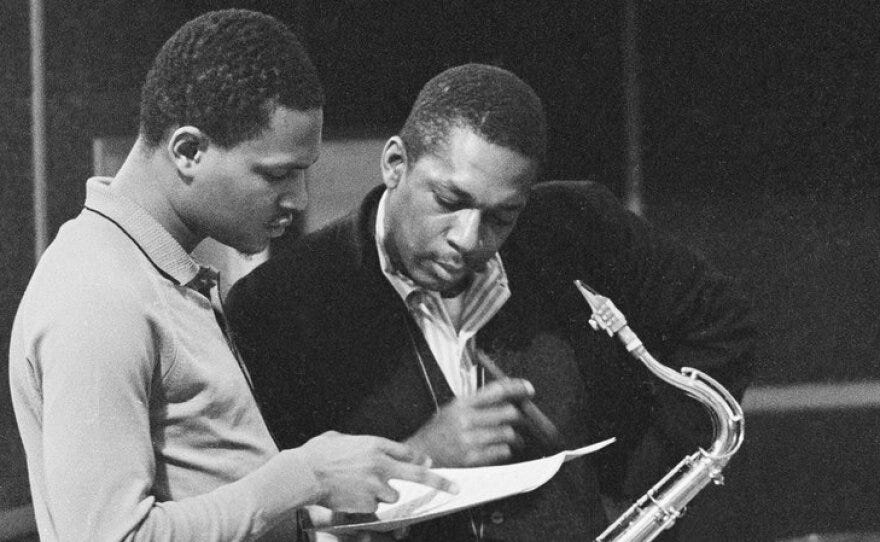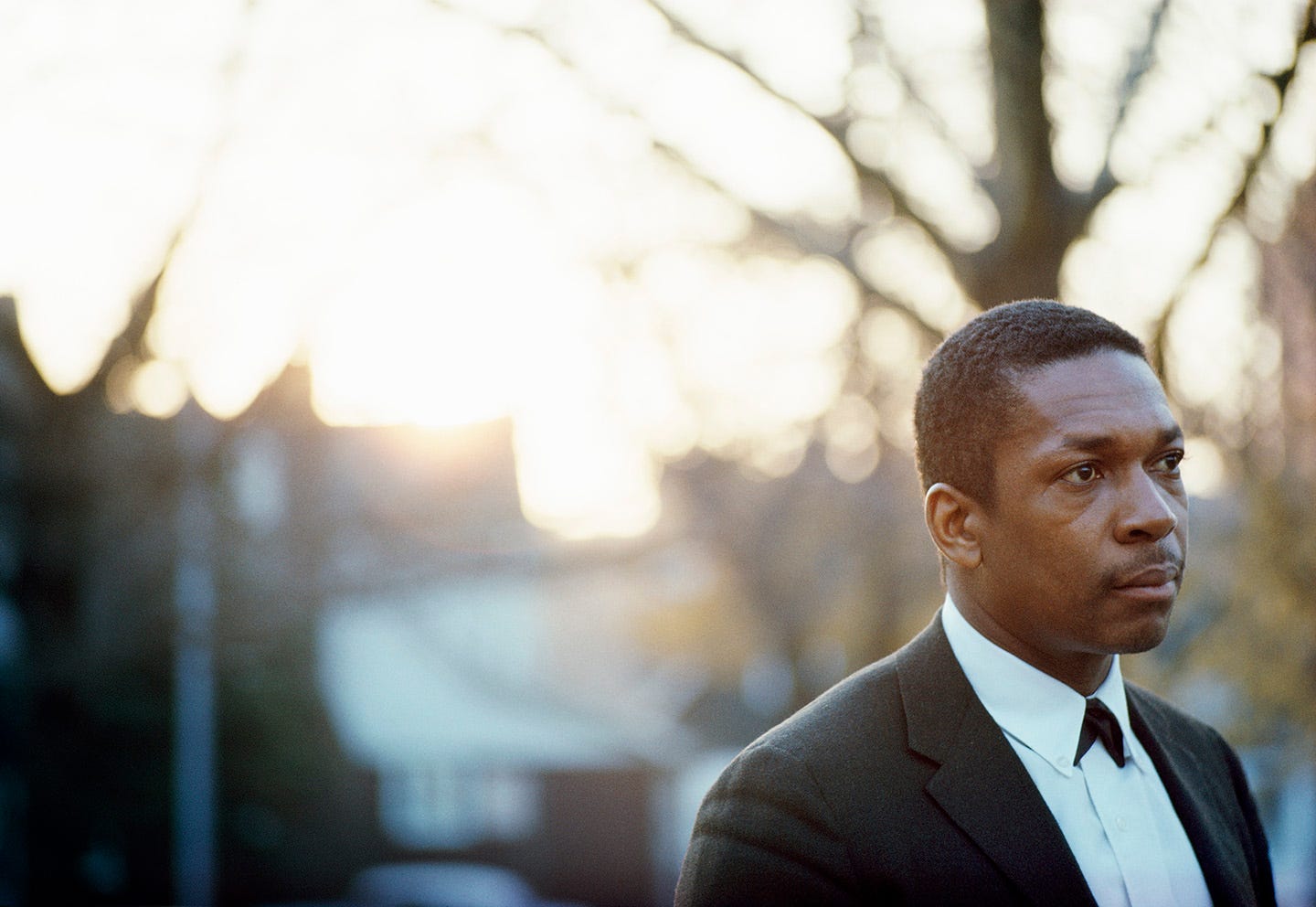John Coltrane – Alabama (response to 16th Street Baptist Church Bombing, September 15, 1963)
Composed as a memorial to the four little girls killed by the racist firebombing, Coltrane developed its melody from the rhythms of a speech by MLK.
Watch full video on Twitter.
View most updated version of this post on Substack.
Sixty years ago today, on September 15, 1963, the 16th Street Baptist Church in Birmingham, Alabama was bombed by the KKK in a horrific act of racist violence, killing four young Black girls (Addie Mae Collins, age 14; Carol Denise McNair, age 11; Carole Rosamond Robertson, age 14; and Cynthia Wesley, age 14).
Klan members planted at least 15 sticks of dynamite under the steps of the church that morning. When the bomb exploded at 10:22 am, five girls were in the basement at the time, all in a restroom by the stairwell changing into their choir robes. The only one who survived was Addie Mae’s younger sister Sarah Collins, age 12, who was blinded in one eye.
The bombing shocked the nation and helped galvanize support for the Civil Rights Act of 1964. In response, John Coltrane wrote the epic mournful jazz elegy “Alabama.” It was first recorded that November at Van Gelder Studio in New Jersey (with Coltrane on tenor sax plus the other members of his classic quartet - McCoy Tyner on piano, Jimmy Garrison on bass, and Elvin Jones on drums) and released in January, 1964 as a studio version amidst live tracks on his Live At Birdland LP.
Tyner told jazz historian Ashley Kahn for his 2002 book A Love Supreme: The Story of John Coltrane’s Signature Album the piece’s melodic line was derived from the rhythms of a speech by Martin Luther King Jr. that Coltrane read in a newspaper.
McCoy Tyner and Coltrane at Van Gelder Studios, 1963.
The speech in question was almost certainly Dr. King’s eulogy to the four little girls killed in the blast, which he delivered before an integrated crowd of 3,300 at funerals held in Birmingham’s Sixth Avenue Baptist Church on September 18, 1963. Jazz historian Lewis Porter deduced that the exact article Coltrane read was likely an Associated Press report on the funerals, reprinted in papers around the nation the next day on September 19. Porter has shown how the excerpts of King’s speech in that article fit with the flow of “Alabama”:
“They did not die in vain. 0:05: God still has a way (of) bringing good (longer note for “good”) out of evil — they did not die in vain. 0:15: (The) innocent blood of these little girls may well serve as a redemptive (low notes) force for this city. 0:30: We must not despair (extra notes on “despair”), we must not become bitter. (I haven’t fit words for 0:42 to 1:20 yet.) 1:20: (Softly, mournfully — the band goes along with the rhythm that he conducts with his head) Today you do not walk alone--- 1:34: Not walk alone.”
Coltrane and his quartet subsequently recorded “Alabama” on December 7, 1963 at KQED TV in San Francisco for a 30-minute episode of host Ralph J. Gleason’s public television series Jazz Casual. The episode was broadcast in February, 1964.
Around this time period, Coltrane played a number of civil rights benefits. Interviewed in the summer of 1966 by historian and critic Frank Kofsky, he laid out his beliefs on the power of music to promote social change:
“I think music is an instrument. It can create the initial thought patterns that can change the thinking of the people … Music is an expression of higher ideals … brotherhood is there; and I believe with brotherhood, there would be no poverty … there would be no war … I know that there are bad forces, forces put here that bring suffering to others and misery to the world, but I want to be a force which is truly for good.”
Further info:
“John Coltrane: A Commemorative Interview,” 1966 interview by Frank Kofsky, Ann Arbor Sun, September 27, 1974.
4 Little Girls, documentary by Spike Lee, 1997.
“On John Coltrane’s “Alabama”,” by Ismail Muhammad, The Paris Review, June 17, 2020.
“'They Did Not Die in Vain': On "Alabama," John Coltrane Carefully Wrought Anguish Into Grace,” by Lewis Porter, WBGO, November 18, 2020.
#jazz #JohnColtrane #4LittleGirls




